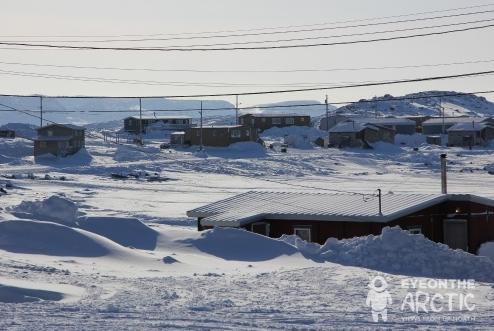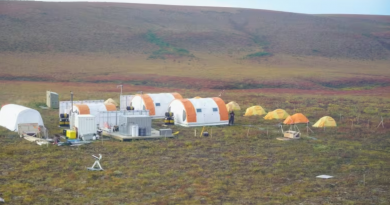The effects of climate change on human health in the North

The High Arctic is experiencing serious effects from the changing climate.
It’s also affecting the health of Inuit who live in the North in a variety of ways says James Ford, who led a research team studying the issue.
James Ford is an assistant professor in the Department of Geography at McGill University in Montreal where he leads the climate change adaptation group.
Professor Ford says the Arctic is like “the canary in the coal mine,” warning the rest of the world.
“Climate change: biggest challenge to global public health”

He says the effects seen in the North are the kinds of things the rest of the world will experience in years to come.
Adaptation to climate change is “the biggest challenge for global public health this century,” but few studies are done about how people in the Arctic should adapt.
In researching the issue and creating the paper, Ford says the goal of the team is to “initiate and inform debate on health adaptations for Inuit populations by outlining key considerations.”
He says as the climate warms, new diseases are entering the region from the South, while other pathogens can spread more widely. This presents new risks not only to humans, but to animals, which the Inuit depend upon for food.
Effects on traditional culture
Inuit health is also being affected by the increased physical danger of injury or death while travelling on the land. The changing climate means Inuit find themselves facing new and unpredictable conditions while travelling on the land or sea for hunting.
There are also emotional and mental health issues associated with climate change.
To listen to Radio Canada International’s Marc Montgomery in conversation with McGill University professor James Ford, click here
Traditional land skills are intimately connected with culture and identity. But the changing climate limits time and security out on the land. This can negatively affect self-worth.
Erosion of land based skills also make Inuit vulnerable in other ways.
Traditional knowledge and survival skills are not being passed to youth who then also get themselves into difficulty when they go out on the land.
Another vulnerability is the cash economy and the growing community cost of hunting, further increasing food insecurity issues.
The paper notes that the federal government has invested “only $16 million” for climate change and health research between 1999 and 2009 — about $3 million of that went towards adaptation. That’s not nearly enough “for a problem as complex and potentially damaging to human and environmental health as climate change.”

The researchers suggest 15 potential policies for adaption to mitigate and adapt to climate changes, among them:
• enhance surveillance, monitoring and early warning health systems;
• encourage poverty alleviation initiatives;
• strengthen role of Inuit in decision-making;
• adopt culturally appropriate health services and programming;
• strengthen land-based training; and promote traditional knowledge;
• apply climate change screening lens to policy programs; and,
• educate health practitioners about climate-related health impacts.
Related Links:
Canada: Nunavut Inuit go hungry more than any other indigenous group in developed world: report, CBC News
Greenland: Researchers must be honest with Arctic peoples about food contaminants: doctor, Eye on the Arctic
United States: New study to examine mercury in Arctic, Alaska Dispatch



